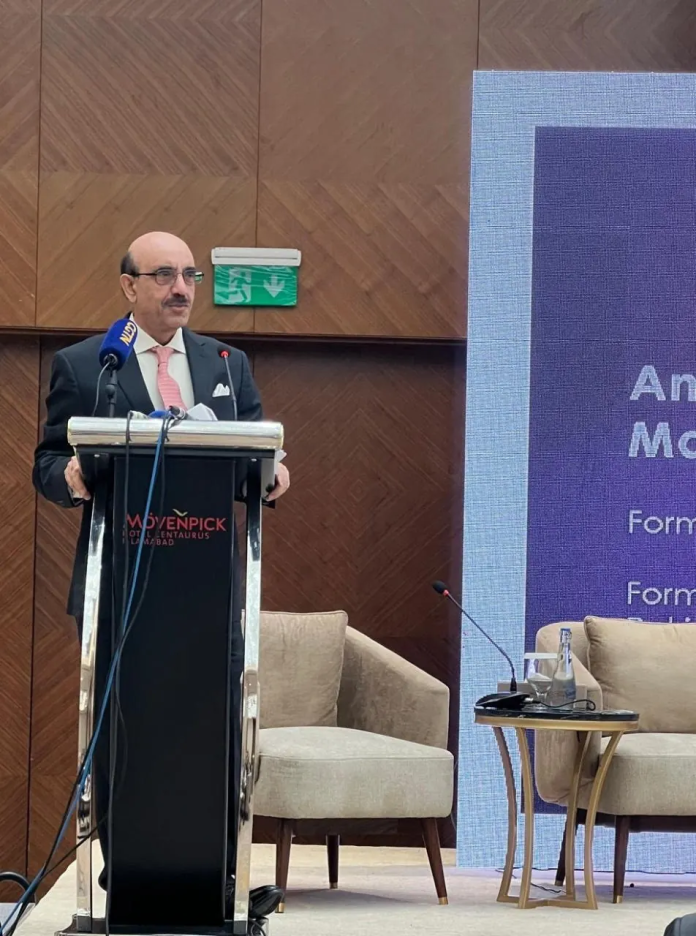ISLAMABAD, Nov 27 (DNA):Pakistan’s former Ambassador to the United States, China and the United Nations, and former President of Azad Jammu and Kashmir, Sardar Masood Khan on Wednesday outlined a comprehensive framework for Pakistan’s strategic direction amid intensifying United States–China competition.
Speaking as chief guest at the Beaconhouse National University (BNU) Centre for Policy Research, he stressed diplomacy, deterrence, development and balanced geopolitical engagement as guiding pillars for Pakistan’s future course.
He noted that while Washington and Beijing remain rivals, they are simultaneously interdependent in economic, technological and strategic spheres, recalling how the West outsourced critical industries to China in the early 2000s, reshaping supply chains and global markets.
He described China’s Belt and Road Initiative as an “economic pincer” that has altered strategic geography and expanded Beijing’s influence across Europe, Latin America, Canada and Australia, eroding longstanding American dominance.
While ruling out the likelihood of a direct military confrontation between the two major powers, he observed that the post-World War II order stands “frayed at the core,” partly due to shifts in US policies including alliance recalibrations under former President Donald Trump.
Turning to Pakistan, Ambassador Khan said the country “enjoys a high diplomatic altitude after the May 2025 India–Pakistan war,” and that its global standing has strengthened militarily, politically and diplomatically.
He termed President Trump’s public praise of Pakistan “unprecedented and strategically consequential,” reiterating that Pakistan’s foreign policy should avoid binary choices between Beijing and Washington and instead leverage its strategic and economic geography for inclusive engagement with all major regions.
Highlighting deterrence, he called for maintaining “rock-solid, credible nuclear capability” alongside proportional conventional strength against India, while also developing advanced digital and cyber capacities. However, he cautioned that military strength alone is insufficient without social stability, political cohesion and national unity.
Ambassador Khan commended the Chinese Ambassador’s reaffirmation of Beijing’s long-term commitment to CPEC, noting the launch of CPEC 2.0 during the Prime Minister’s visit to China and the signing of $10 billion worth of new agreements in addition to the earlier $62 billion, terming these developments “a rebuttal to scepticism and disinformation.”
On development, he stressed the need for structural reforms, export-led growth, tax modernization and revival of the tech-startup ecosystem, urging policies that ensure opportunity and education for all segments of society. Recalling Pakistan’s historic role as a bridge between China and the US in the 1970s, he said the country could again serve as an “economic and technological bridge,” benefiting from its ties with both global powers.
Addressing regional challenges, he urged diplomatic efforts to ease tensions with India and Afghanistan, emphasizing a consistent strategy built on engagement, credible deterrence, internal stability and sustainable development.
Meanwhile, Khan congratulated former National Security Advisor Dr. Moeed Yusuf on assuming leadership of BNU.

















